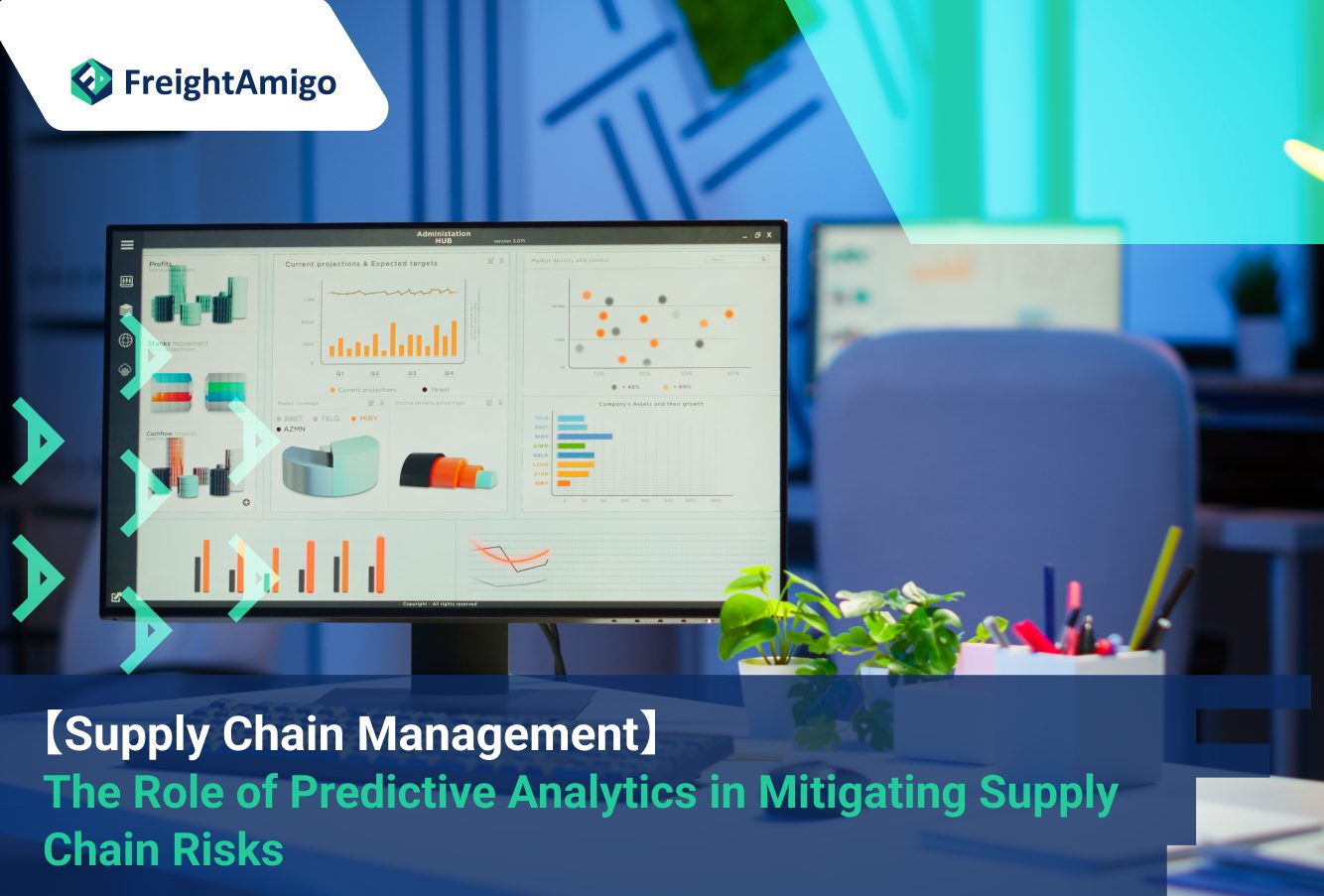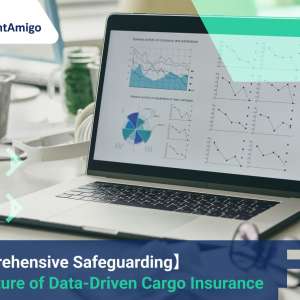February 8th, 2024: Maya Wong– Marketing Analyst at FreightAmigo
In today’s increasingly interconnected business landscape, maintaining a smoothly functioning supply chain is a crucial aspect of operational success. Unfortunately, the intricate nature of global supply chains exposes them to various risks that could potentially disrupt the flow of goods and services. This is where Predictive Analytics comes into play, serving as a powerful tool to foresee and mitigate Supply Chain Risks.
Want To Compare The Best Express, Air Freight, Sea Freight, Rail Freight & Trucking Rates So As To Have Better Control On Cost?
Understanding Predictive Analytics
It refers to the utilization of past data, statistical algorithms, and machine learning techniques to anticipate future outcomes. In the context of supply chain risk management, predictive analytics scrutinizes a myriad of data points to identify potential disturbances and their likely impact, thereby enabling businesses to proactively counteract these disruptions and ensure continuity in their operations.
The Role of Predictive Analytics in Supply Chain Risk Management
It plays a transformative role in numerous aspects of supply chain risk management. It not only enables businesses to anticipate disruptions but also helps in devising strategies to mitigate their impact.
Anticipating Disruptions
The ability to forecast disruptions is a crucial advantage of predictive analytics. Here are some areas where it plays a pivotal role:
- Demand Fluctuations: Predictive analytics evaluates historical demand patterns, market trends, and external factors to foresee fluctuations, thereby enabling businesses to adjust inventory levels and production accordingly.
- Supplier Performance: By assessing historical supplier data and monitoring external factors, predictive analytics identifies potential supplier disruptions, facilitating proactive measures to secure alternate sources or alleviate delays.
- Natural Disasters: Geographic and meteorological data can predict the likelihood of natural disasters, assisting businesses in allocating resources and rerouting supply chains to avoid affected areas.
Mitigating Impact
Predictive analytics also aids in devising strategies to lessen the impact of disruptions:
- Route Optimization: It considers weather forecasts, traffic patterns, and road conditions to optimize transportation routes, reducing delays caused by unforeseen circumstances.
- Inventory Management: By forecasting demand and potential disruptions, businesses can adjust inventory levels to prevent stockouts or excess inventory.
- Cash Flow Management: It aids in forecasting cash flow disruptions due to supply chain interruptions, enabling better financial planning.
Future Trends in Predictive Analytics
As technology continues to advance, the role of predictive analytics in safeguarding supply chains is set to become increasingly critical. Here are some future trends to look out for:
- AI Integration: Artificial intelligence enhances the accuracy and speed of predictive analytics by enabling systems to learn and adapt in real-time.
- Big Data Integration: The amalgamation of predictive analytics with big data allows businesses to analyze a broader range of data points for more accurate forecasts.
Challenges and Considerations in Implementing Predictive Analytics
While the benefits of it in supply chain risk management are significant, its successful implementation does come with certain challenges:
- Data Quality: Accurate predictive analytics relies on high-quality data, which can be challenging to obtain and maintain.
- Model Complexity: Constructing effective predictive models necessitates skilled data scientists and a comprehensive understanding of the supply chain.
- Constant Adaptation: Predictive analytics models need to be continuously updated to account for changing market conditions and new risk factors.
Conclusion: The Future of Predictive Analytics in Supply Chain Risk Management
Predictive analytics is revolutionizing supply chain risk management by transitioning from reactive to proactive strategies. By leveraging historical data and advanced algorithms, businesses can anticipate disruptions, reduce their impact, and bolster the resilience of their supply chains. As technology continues to evolve, the role of predictive analytics in safeguarding supply chains will only become more critical in the ever-changing business landscape.
Ultimately, it plays a vital role in managing supply chain risks, offering the potential to improve operational efficiency, enhance customer satisfaction, and boost overall business performance. By harnessing the power of predictive analytics, businesses can make data-driven decisions that drive growth and success in today’s competitive market.
There Are Different Options For Cargo Transportation. If You Want To Choose The Most Convenient And Suitable Solution, It Is Best To Have The Full Support Of Logistics Experts! If You Are Planning To Ship Goods Overseas, Please Go To The FreightAmigo Page For Inquiries.
Read More:
【Data Analytics and Optimization】 Harnessing the Power of Supply Chain Data with IoT
【Emerging Technologies】 Role of Artificial Intelligence in Freight Technology
【Technology-driven Innovations】 An Overview of Federated Learning Techniques and Applications
If you have any inquiries on logistics/supply chain, feel free to contact FreightAmigo now:
Chat with us online | Hotline: +852 28121686 | WhatsApp: +852 27467829









































